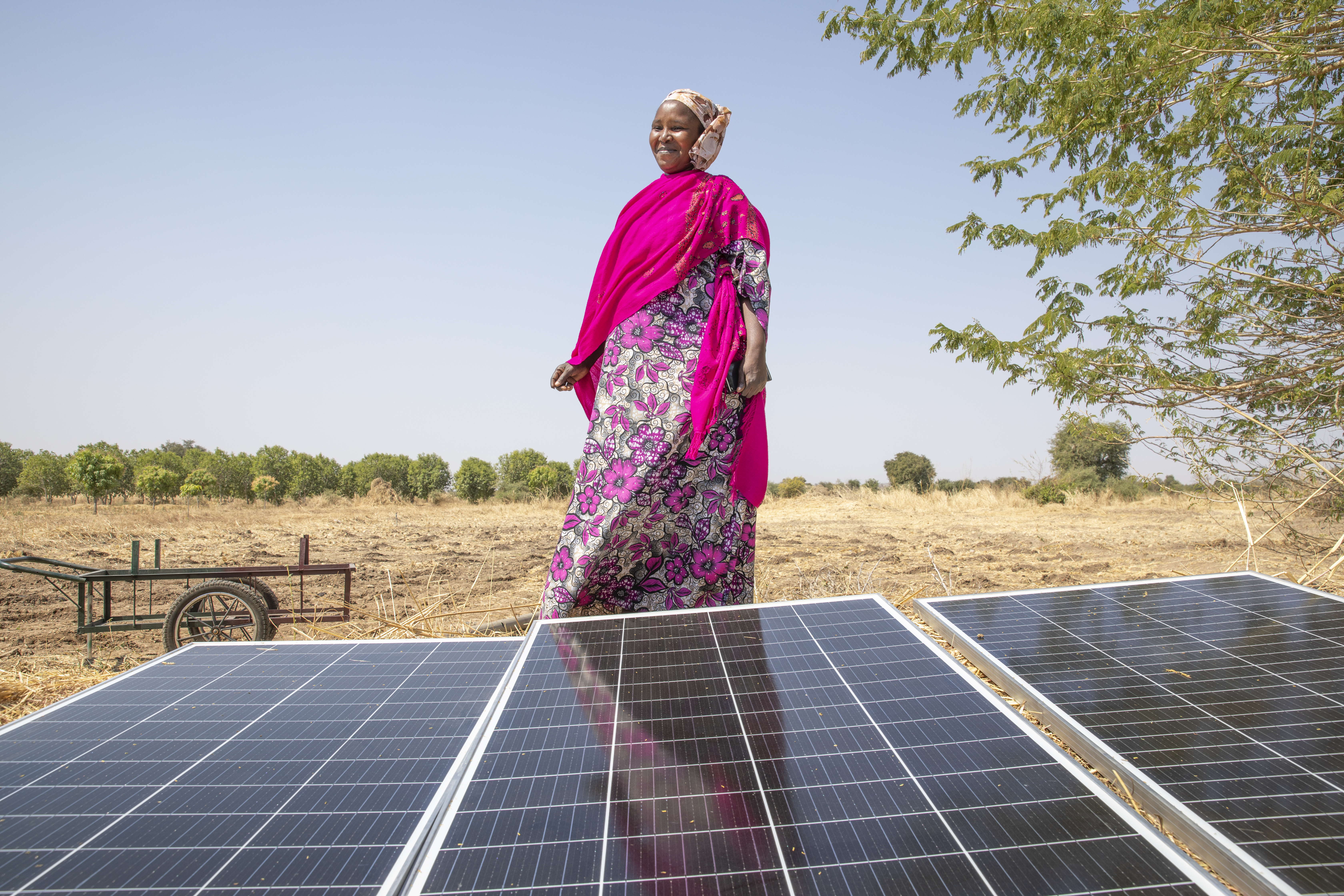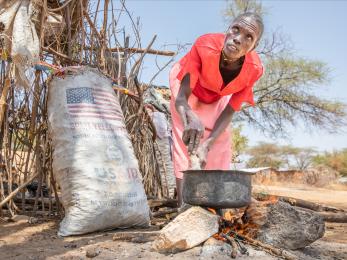Breadcrumb
Nigeria

Mercy Corps has worked in Nigeria since 2012, promoting peacebuilding, delivering emergency assistance, and supporting communities to strengthen economic resilience. In 2023, Mercy Corps’ work reached over 4 million people across the country.
The context
With the largest economy in Africa, Nigeria drives cultural and economic influence felt across the continent. The country has a population of over 229 million people—more than 63% of the population is under the age of 25—and is recovering from long periods of corruption, conflicts, water insecurity, and weak economic growth that has undermined both rural and urban development.
Protracted conflicts within communities and between the military and armed opposition groups have displaced millions of people across the country. Families are still resettling hundreds of miles from their hometowns after fleeing the Boko Haram insurgency, which targeted young women and girls. A decades-old conflict between farmers and herders over competition for natural resources intensified and became violent, furthe r displacing migrant communities. Now, over 3 million people are internally displaced throughout the country. The resulting humanitarian crisis has eroded trust in government authority, destroyed infrastructure, and limited access to basic services.
The oil-dependent economy has struggled to keep up with rapid population growth. Cost of living has increased and over 100 million Nigerians live below the international poverty line. In addition to economic concerns, rural areas in northern Nigeria urgently need access to clean water. These communities experience high rates of dysentery, cholera, and malaria due to reliance on contaminated rain and well water. Nearly 80% of people in northeastern Nigeria rely on agriculture for their incomes and to provide food for their households. Climate change and droughts have further impacted the economy, disrupting crop growth and access to land.
Our impact
Since 2012, Mercy Corps has partnered with communities to help them recover and rebuild while addressing root causes of conflict, insecurity, and inequality. Through our program activities we are making an impact across the areas below:
Providing access to clean water and hygiene education
Mercy Corps promotes the creation of water distribution systems in many rural areas and small towns in the northern regions of the country. The programming helped dig boreholes, provided sanitation and hygiene education, and built the infrastructure for consistent access to clean water. Many homes now have running water for the first time. The boreholes also support job creation—local community members are hired and trained to manage and maintain the water facilities.

Growing economic resilience in agriculture
Mercy Corps promotes climate-smart, sustainable agricultural techniques for farmers. Installing solar-powered irrigation systems is a sustainable method to water crops throughout unpredictable dry seasons. Providing climate-smart seedlings, which have genetically adapted to thrive in warmer temperatures with less water, helps farmers to withstand droughts. Other rural initiatives in the region provide training and resources in agriculture and business management. The programming assists farmers with materials to support crops like ginger, maize, wheat, and rice.

Supporting peacebuilding and local governance
Mercy Corps has offered meditation training for community members and government officials to work together and increase safety in their communities. By gradually putting peacebuilding interventions into place, communities are building trust and social cohesion. For example, farmers and herders experienced conflict over how to share limited resources. By participating in mediation, the groups settled on agreements that resulted in protecting land, increased crops, and improved access to water and food security. Locally led solutions created by the community help them to inclusively respond to crises.

Building resilience and safety for women and young people
As households transition from emergency situations to early recovery, Mercy Corps provides access to safe and adequate housing, clean water services, health and nutrition support, and food assistance. This support is particularly crucial for the many women and girls across the country who have been displaced by terrorism and religious-based conflict. Now older, they want to be more vocal and engaged in their governments to prevent conflict and to build peaceful communities. Many participants have received mud brick homes, food, and plots of land.

Women have been encouraged to join resource groups which create safe spaces for them to receive career guidance and training to learn and find a market to share their skills, like sewing. Participants in peacebuilding groups learn about their neighbors from different religions and cultures. The groups also hold events for the wider community, where people can share about difficult events and advocate for positive change.





